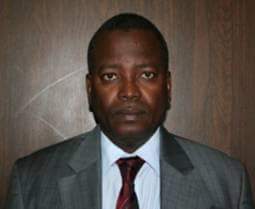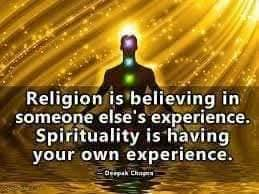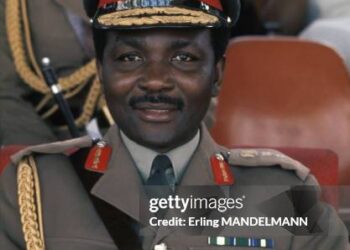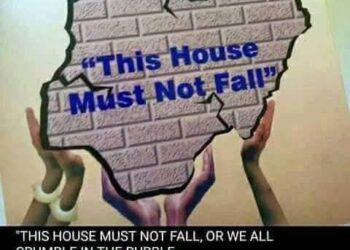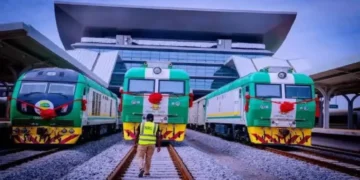Reflections on Media Transformation in Africa by Stanley Chukwuemeka Okereafor
INTRODUCTION
The media in Africa with its long history has transformed greatly.
This can be attributed to a number of factors, including breath-taking communication technology breakthroughs, independence of African states, capitalism, media democratisation and the right to own media houses and the internet.
These factors have contributed immensely to the growth and transformation of media in Africa, and indeed would continue to contribute.
To get better understanding, it may be helpful to do a quick review of the history of media in Africa.
Pre-colonial era media in Africa in the general sense existed before they were termed as media.
With folklore, oral traditions and poetry among other traditional media forms, Africans have functional media forms used to express views, share information, and instil values to a wide audience. African traditional media were also used to organise and galvanise community action.
Man as a creature of communication has his very existence dependent on his ability to communicate within and without his being and share appropriate media products.
Different schools of thought have varying positions on the advent of colonial media.
Some say that modern media forms like newspapers and radio were introduced to Africa by “European missionaries and colonialists some 200 years ago.
The overall development of media (esp.) newspapers in the continent is linked to the long-running process of political change across the continent.” In Nigeria, the first ever mass media platform was Iwe Iroyin. The publication was in Yoruba language, and started around 1885.
Iwe Iroyin’s focus was to educate and enlighten, even as it shared the religious inclination of its champion, Reverend Henry Townsend, a British Missionary.
The Colonialists used modern mass media to control African populations. Colonial media products were therefore a form of cultural invasion and disorientation.
Colonial media were used to help colonialists control wealth, natural resources, and cultural products of the African continent.
To a large extent, the colonialists succeeded in the use of mass media to their advantage.
Africans were intrigued by mass media channels especially radio and television.
As a child growing up in the city of Lagos in the late 1970s and early 80s, not many people owned the television box especially.
TV stations and programmes usually started by 4pm and closed after the 9pm network news.
TV viewing was a community activity, and indeed it was a privilege to watch TV.
Unless your family owned the TV set, children were almost always guaranteed to watch from outside, peeping through windows and open doors. Everyone scrambled for any available space.
As the movement and interaction of citizens from across Africa to Europe and America continued, and the enlisting of Africans in Western militaries to execute the world wars, a new set of Africans emerged, “foreign” Africans.
This new class of African citizens learned “the ways of the world”, bringing back to the continent and their home countries new systems, cultures and inventions to Africa. Importantly, these Africans owned the “imports” or at least owned the “imports” in collaboration with their Western partners.
Organised media was one of the imports.
Following disruptive developments across the world, with outlawing of slave trade, and growing discontent against colonialism and colonialists, organised media were deployed by African elites to seek independence and freedom from colonial rule.
In Nigeria, the new crop of African migrants, many of whom lived in Lagos, the former capital started mass media companies including Lagos Daily News.
The newspaper started by Herbert Macaulay and John Akilade Caulcrick in 1927 was reputed to be the first daily newspaper in British West Africa.
The newspaper was instrumental in fuelling the growing anti-colonialism emotions among the elites.
To expand its scope and gain more followership, the newspaper rechristened to Nigeria Daily News.
Other media organisations were also players in the media space and contributed to the growing discontent against colonialism.
Daily Times was one of them. Ernest Ikoli, a political and anti-colonial activist was the first Editor of Daily Times.
There was also the West African Pilot founded in 1937 by Nnamdi Azikiwe.
These media organisations in their own ways contributed to Nigeria’s independence from British colonial rule.
The media organisations also helped to breed a new crop of media elites who were respected and influential.
These included Lateef Jakande, Bisi Onabanjo, Ernest Ikoli, and Anthony Enahoro. Some of these media elites also featured in the political terrain, and held some political offices.
Post-independence politics witnessed the advent of coups and counter coups across Africa.
These military interventions and interruptions in political governance had remarkable impact in mass media development.
Not only were media houses shut down by dictatorial military governments, several military decrees were promulgated aimed at stifling press freedom. In Nigeria, one of the most popular military decrees against press freedom and free speech was the Public Officers (Protection against False Accusation) Decree No. 4 of 1984. Two prominent Nigerian journalists Tunde Thompson and Nduka Irabor, were prosecuted under the infamous decree.
The advent of and accessibility to technology has also transformed mass media in Africa.
Technology has improved the speed and availability of media products presented to consumers.
It has also made media outputs largely affordable.
Unlike in the past, smartphone users, with a push of the button can access news stories from every part of the globe.
The mobile phone has now become the new platform while internet connection is the new currency.
Closely related to new technology is the advent of social media channels that have democratised the media space.
Many social media channels have news components, and users also utilise the platforms as news outlets.
Facebook, Instagram and Twitter are popular social media sites that are also popular as news outlets.
It is instructive to note that social media have enhanced the promotion of organised falsehood, otherwise known as fake news.
The lack of a universal Ombudsman has created gaps leading to the publication and broadcast of poorly edited or out rightly false and misleading stories. Infact there is an “epidemic of online fake news”.
In an article by Eileen Brown published in zdnet, “an economic study by Tel Aviv, Israel-based cybersecurity firm CHEQ and the University of Baltimore have revealed that fake news is costing the global economy $78 billion each year.”
This is huge for a world grappling with extreme poverty, natural disasters, and climate change.
Media ownership used to be the exclusive preserve of the rich and powerful in society.
Media is a capital intensive project. While some aspects of the media is still owned and operated by the “high and mighty”, new technologies have also given rise to new media entrepreneurs, and what is also popularly known as Citizen Journalists. Generally defined, Citizen Journalism is the gathering, reporting and distributing of news by members of the public rather than trained journalists.
Of course this new trend of citizen journalism has an impact on the increase and popularity of fake and unsubstantiated news. Citizen journalism is an important era in media transition, not only in Africa, but globally.
A comparison of the benefits against the disadvantages of citizen journalism would be a matter for another day.
However, the impact of citizen journalism is so evasive that many countries of the world are grappling with measures to contain its spread and impact.
CONCLUSION
In a talk with a group of postgraduate students of the Department of Mass Communication, Bingham University, Karu, Nigeria, Dr Desmond Okocha avers that, “media in Africa need to redefine itself and understand its purpose” if media in Africa would serve as dependable tool in developing and progressing Africa.
This statement is instructive. When purpose is unknown, abuse is inevitable according Dr Myles Munroe in his book ‘Understanding the Purpose and Power of Woman’.
To serve the teeming African population, Media in Africa need to first understand and define its roles in satisfying the yearning of a population bedevilled by long years of poverty, misrule, misrepresentation and unbridled corruption.
Media in Africa must be partners in progress in developing the continent, and not a tool for divisiveness or disruptiveness.
Media in Africa must transcend the low waters of being willing tools in the hands of ‘highest bidders’ to perpetrate oppression and promote immoral capitalism, they cannot be silent in the face of injustice.
Media in Africa must be a critical tool in the continent’s march to self-actualisation and sustainable development premised on the collective power and strength of the people to choose and achieve their shared destiny.
To be more effective and relevant to the everyday struggles of the average African, it is important for the African media to reassess itself, clearly articulate and pursue a stated purpose.
This redefinition would highlight the importance of perhaps strengthening Development Media, an aspect of media practice that is focused on empowering the populace, supporting government policies that promote citizen wellbeing and enhance wealth creation.
*References*
Abebe, M. M. (2019). The Historical Development of Media in Unconquered Africa A Historical Review of Ethiopian Media
https://quotepark.com/quotes/1518100-myles-munroe-when-purpose-is-not-known-abuse-is-inevitable/.
https://www.tandfonline.com/doi/abs/10.1080/13688804.2019.1634528?journalCode=cmeh20#:~:text=Media%20were%20introduced%20to%20Africa,political%20change%20across%20the%20continent.
https://www.culturalsurvival.org/publications/cultural-survival-quarterly/media-and-preservation-culture-africa
https://guardian.ng/features/the-nigeria-media-evolution-trends-and-projections-for-2018-part-1/
https://www.zdnet.com/article/online-fake-news-costing-us-78-billion-globally-each-year/
*Stanley Chukwuemeka Okereafor is communication specialist based in Abuja. He can be reached on ambchukwuemeka@gmail.com*





